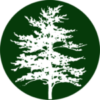
Each second Monday of April, the Wisconsin Conservation Congress holds their spring hearings. There are 54 questions this year concerning a myriad of conservation issues. One of great importance to natural landscaping enthusiasts is advisory question 45 on the use of neonicotinoids:
“Should the Conservation Congress work with the DNR, NRB and Wisconsin Legislature to take up the ‘Saving Wisconsin Pollinators Act,’ and include specific language to ban the use of neonicotinoid insecticides (dinotefuran, clothianidin, imidacloprid and thiamethoxam) regardless of application method on all state owned agricultural and forest lands, and establish limited use guidelines for continued use on commercial and private agricultural lands? Yes or No?”
“The question relates to banning the use of neonicotinoid insecticides (neonics) on state owned agriculture and forest land. “Neonicotinoids are a widely used class of insecticides. They are neurotoxins that are present throughout all parts of the plant once applied, including the leaves, pollen, and nectar. They can also contaminate water resources and soils as well. Studies show that pollinators are endangered through acute poisonings by coming into contact with these toxins. It has been widely reported that we are currently experiencing a large loss of pollinators.”

In essence, although neonics are effective against a variety of insect pests, they also kill non-target insects such as pollinators, and can have an equally unhealthy indirect effect on birds, bats and other insect-eating wildlife in the chain of life.
Wisconsin Conservation Hearings
The hearings will be held in each county of Wisconsin on April 9, 2018 at 7:00PM. Everyone attending has a chance to speak on behalf of any of the questions — pro or con. Everyone attending has the opportunity to cast their vote — yes or no — on each question. These citizen advisory ballots are then presented to the Natural Resources Board (NRB) and the Department of Natural Resources (DNR).
If you are not able to attend the hearings personally, your comments should be submitted to the Wisconsin DNR no later than April 9, 2018. Send your comments to:
•Fisheries Rule Coordinator, Scott Loomans, 101 South Webster St. PO Box 7921, Madison, WI 53707-7921, (608) 266-5206, scott.loomans@wisconsin.gov
•Wildlife Rule Coordinator, Scott Karel, 101 South Webster St., PO Box 7921, Madison, WI 53707-7921, (608) 267-2452, scottr.karel@wisconsin.gov
Please send your comments to the WDNR. Let’s get the use of neonics under control here in Wisconsin.
Background on Neonic Insecticides by Wisconsin Society for Ornithology
